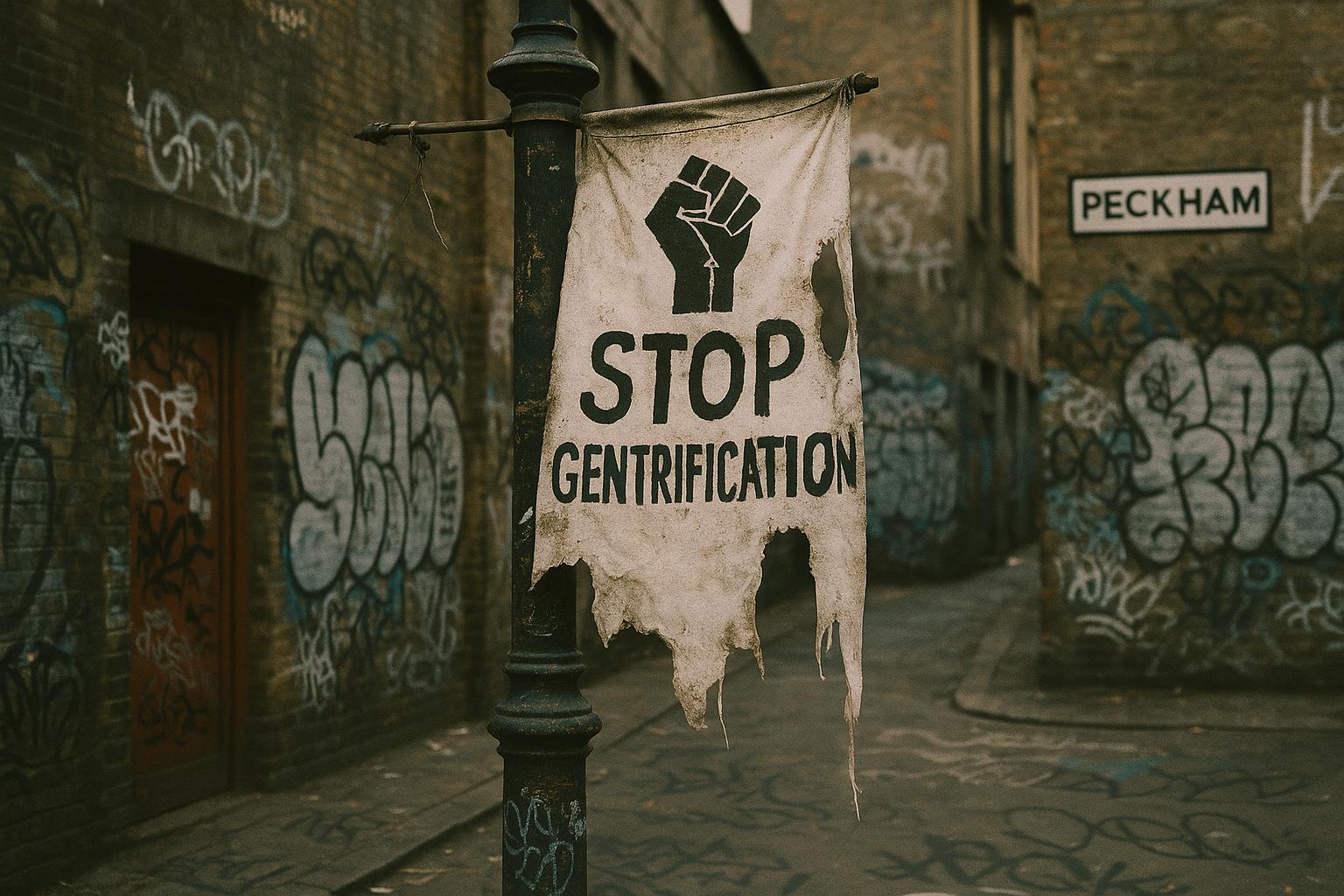In Peckham, a key area within London’s zone two, a contentious battle is unfolding over the redevelopment of the Aylesham Centre, a late-1980s shopping arcade that includes a Morrisons supermarket and various retail units. This site has been identified by Southwark Council as a crucial part of its 'New Southwark Plan' to meet ambitious housing targets, aiming to deliver approximately 850 new homes alongside retail, workspace, and improved public spaces. Yet, despite near-universal agreement on the need to redevelop the outdated shopping centre, opposition to the current plans has ignited intense debate and public protest.
The crux of the controversy lies in the proposed housing mix, particularly the reduction in affordable housing offered by Berkeley Homes, the developer who purchased the site in 2021. Initially committed to providing 35% affordable homes, Berkeley drastically scaled back this figure to just 12%, translating from 270 affordable units to only 77. This decision has caused significant frustration and disappointment among local councillors and residents, highlighting the persistent tension between delivering economically viable projects and meeting the urgent need for genuinely affordable housing in Southwark.
The local community group Aylesham Community Action embodies this opposition. While they support the site's redevelopment in principle, the group demands a housing scheme that includes 35-50% affordable homes, with guarantees for social housing and local employment during and after construction. This insistence on stringent social benefits feels, to many, like a push for an ideal that may stall any development in the long run. The campaign has attracted high-profile support, with comedians Nish Kumar and James Acaster helping raise £46,000 to oppose the current plan. This backing has drawn criticism, given the acute housing shortages affecting London, with detractors accusing the comedians of inadvertently hindering much-needed new homes.
The role of Berkeley Homes remains contentious. The developer asserts that their reduced affordable housing offer is a financial necessity, citing the high costs associated with brownfield site redevelopment in London, including expensive legal hurdles and site preparation, which they claim make 35% affordable housing unfeasible. This explanation, while perhaps grounded in economic realities, has failed to satisfy council members or local campaigners, adding to the mistrust surrounding the development.
Southwark Council itself has been vocal in its opposition. In December 2024, it expressed clear disappointment at the cutback in affordable homes, framed as a response to the community’s pressing need for accessible housing options. By July 2025, the council’s Planning Committee unanimously rejected the plans on the grounds that the affordable housing component was insufficient and raised concerns about the potential impact on local heritage. Berkeley Homes then took the rare step of appealing directly to the Planning Inspectorate, bypassing the council. An eight-day inquiry was slated to begin in late October 2025 to determine the development’s fate, underscoring the fraught nature of the process.
This is not a new saga. The site has been earmarked for redevelopment for over a decade, with Southwark identifying it as a priority since 2014. Previous attempts by other developers faltered, leading to Berkeley’s acquisition in 2021. Despite widespread recognition that the aged shopping centre must be replaced, the cycle of delay, complex negotiations over affordable housing, and planning disputes epitomises the challenges at the heart of London’s wider housing crisis: the struggle to balance viable development with affordable, socially beneficial outcomes.
The dilemma has broader implications. The term ‘affordable housing’ itself is increasingly questioned, with critics arguing it often serves as a convenient label that fails to deliver truly accessible homes for those on average incomes. In Peckham, the sustained debate and protests reveal a community deeply divided—not on whether to build but on what kind of homes should be built. The fear is that demanding perfection in affordability may derail any progress, leaving the site—and the broader housing shortage—unresolved.
Ultimately, the Aylesham Centre redevelopment represents a microcosm of London’s housing crisis: a pressing need for new homes, particularly affordable ones, hampered by economic realities, competing local interests, and political complexities. Whether the current plans proceed, pivot to a new model, or stall further, the outcome will have tangible consequences for Peckham’s residents and the city’s wider search for sustainable housing solutions.
📌 Reference Map:
- [1] (CapX) - Paragraphs 1, 2, 3, 4, 5, 6, 7, 8, 9, 10, 11
- [2] (Southwark Council) - Paragraphs 2, 5, 6
- [3] (London Evening Standard) - Paragraph 6
- [4] (Parliament News) - Paragraph 6
- [5] (The Aylesham Centre Community) - Paragraph 1
- [6] (Southwark Council Regeneration Services) - Paragraph 1, 2, 5
- [7] (GB News) - Paragraph 4
Source: Noah Wire Services
